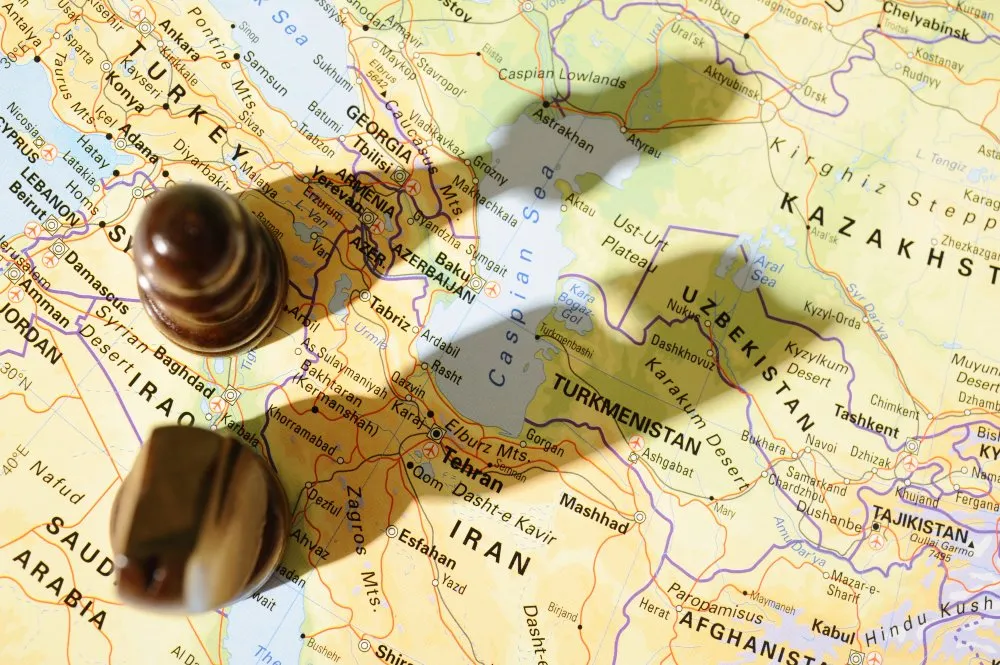
Were the relations between Turkey and the Middle East stable in the past years or were the tensions high?
Written By; Beyzanur Sarıçiçek – Aug 24, 2023
The Middle East, in the broadest sense, includes Iraq, Kuwait, Bahrain, Qatar, United Arab Emirates, Oman, starting from Morocco, Tunisia, Algeria, Libya, Somalia, Ethiopia, Sudan and Egypt in the west to the Gulf of Oman in the east. The area is surrounded by the Arabian peninsula, which includes Turkey, the Caucasus, and the Central Asian Turkish Republics in the north, Iran, Afghanistan and Pakistan, and extends from Saudi Arabia to Yemen in the south, and Syria, Lebanon, Jordan, It is a geography where countries such as Israel and Palestine are located. Located in a strategic geography at the meeting point of three continents, this geography has historically determined the foreign policy of Turkey. Of course, “geography” still matters in the age of globalization. But when the Middle East is mentioned, it comes to mind as a geography where Muslim communities live and where Arabs, Persians and Turks are the majority. Due to the proximity of the region to Turkey, they have always been in contact with each other throughout history. In these relations, we can clearly see that the religion of the region and the Turkish society, as well as cultural characteristics, play a more decisive role in determining the tendency of foreign policy towards the region. But especially after the collapse of the Ottoman Empire, Türkiye has tended to distance itself a little towards the Middle East. Because the political attitudes and behaviors of the newly established state entered a new era with the Republic. This is the biggest reason for leaving. But this situation cannot be based on a single reason . As another point of view, since some states in the Middle East, especially countries such as Syria, Jordan and Lebanon, did not gain their independence after the First World War, it caused Turkey to develop by communicating with Western states, not directly in foreign policy. However, Türkiye still has not fully moved away from the Middle East. During this period, some close contacts were developed with Iran, the only independent Middle Eastern country. After the resolution of the border problems with Iraq and the end of the British mandate on this country, the two countries, together with Iran and Afghanistan, signed the Sadabad Pact in 1937 to ensure the security of the region. The biggest reason for this agreement was the security-centered and defensive measure in Turkey’s foreign policy in those years.
After World War II, both the international system and the geopolitical structure of the Middle East region were reshaped. During this period, the countries of the region gained their independence, but the Cold War began to completely influence the region in a short time. The Soviet Union emerged as a force threatening Turkey’s security and Turkey entered into an alliance with the West. Finally, with Turkey’s accession to NATO in 1952, Turkey-Western relations turned into a military alliance. Even Türkiye has exaggerated this alliance. Because we can say that it was more independent in the past, especially between 1945 and 1948.
There were obvious differences between Turkey and other Middle Eastern countries in the establishment stages of Israel, which was later established by making its name fully known. Because Turkey was the first Muslim state to recognize Israel. Naturally, other Muslim states saw Israel as a threat to themselves. Because of this situation, Muslim states in the Middle East were disturbed by this situation.
Especially since the 1960s, Turkey has entered a period of softening and thus its political attitude towards the countries in the Middle East has also changed. Turkey started to support Arab countries with the 1967 war and clearly stated to the United States that the American bases in Turkey would not be used against Arabs. In addition, Turkey has clearly stated its stance in the meetings held by the United Nations and in the discourses of independent Palestine focused on religion.
As we all know, the lands of the Middle East have rich oil resources and I do not think that any country will completely turn its back on the Middle East. This is how all relationships have been throughout history. Because countries think about their own interests economically and when it comes to oil, the situation is more important. We can see this example in Turkey in 1973. Another factor affecting our foreign policy direction with the Middle East was the foreign exchange shortage and increasing oil prices. In other words, under the current conditions, together with political and economic interests, Turkey and the Middle East have entered a process of rapprochement. On the economic front, it is true that Turkey’s trade with its neighbors and nearby regions has greatly increased in recent years. Turkey’s growing economy necessitated searching for new opportunities in neighboring countries. On the other hand, developments that negatively affected economic relations with other countries such as Iraq and Iran also damaged relations with Armenia and Syria. In connection with all these, it is necessary to emphasize the damaging effect of the Kurdish unrest in the country.
Two important developments that emerged in the 1980s affected Turkey’s Middle East policy in two different ways. The fight against the separatist “PKK” (Kurdistan Workers’ Party) terrorism that emerged in the southeast of Turkey during this period has been one of the most important issues of Turkish politics. On the other hand, the support of Syria and Iraq to the PKK has added a new problem to Turkey’s relations with these countries. On the other hand, Turkey’s starting to open up economically and adopting an export-oriented economic growth strategy pushed Turkey to establish good relations with the countries in the region.
In addition to the PKK, the economic-based foreign policy, which started to be effective in Turkey’s foreign policy in general since the early 1980s, has also been effective in the Middle East policy. In this period, Iraq and Iran started to invest in Turkey’s trade. In order to develop trade and economic relations within the region, the Economic Cooperation Organization (ECO) was revived between Turkey, Iran and Pakistan. Turkey also pioneered the signing of a series of cooperation agreements that envisaged the development of economic relations among the OIC members. But since we saw Turkey following a balance policy in the 80s, it tried to improve its attitudes towards not only the Middle East but also Europe.
As a result, Turkey has always been in a balanced attitude both in the region and in the dates we examined in general. But while applying these attitudes, the ideological, religious and cultural aspects of the region should be taken into account. Although the Middle East seems to come to our minds when it comes to only one type of country, the region actually has a lot of distinctions and different characteristics within itself. In other words, these countries are in very conflicting interests. Most Middle Eastern countries have very different views on Palestinian issues, especially even though they seem to belong to the same religion religiously. Therefore, although the region is very important for Turkey, a policy that does not take into account the balances in the region causes some doubts in Turkey’s regional policies. Unfortunately, it is observed that Turkey’s policy of taking an active stance in regional issues is in a political enthusiasm reminiscent of the Ottoman Empire, and when it cooperates with the West, it faces the accusation of a country collaborating with imperialism. It can be argued that the vast majority of such descriptions stem from false propaganda and prejudices formed by incomplete information. Although the Arab countries themselves are in close relations with Western European countries and the USA on many issues, the target of such accusations is always Turkey.

I'm Beyzanur Saricicek. I am studying Political Science and International Relations at Necmettin Erbakan University. My special interests are Turkish Foreign Policy and the Middle East.